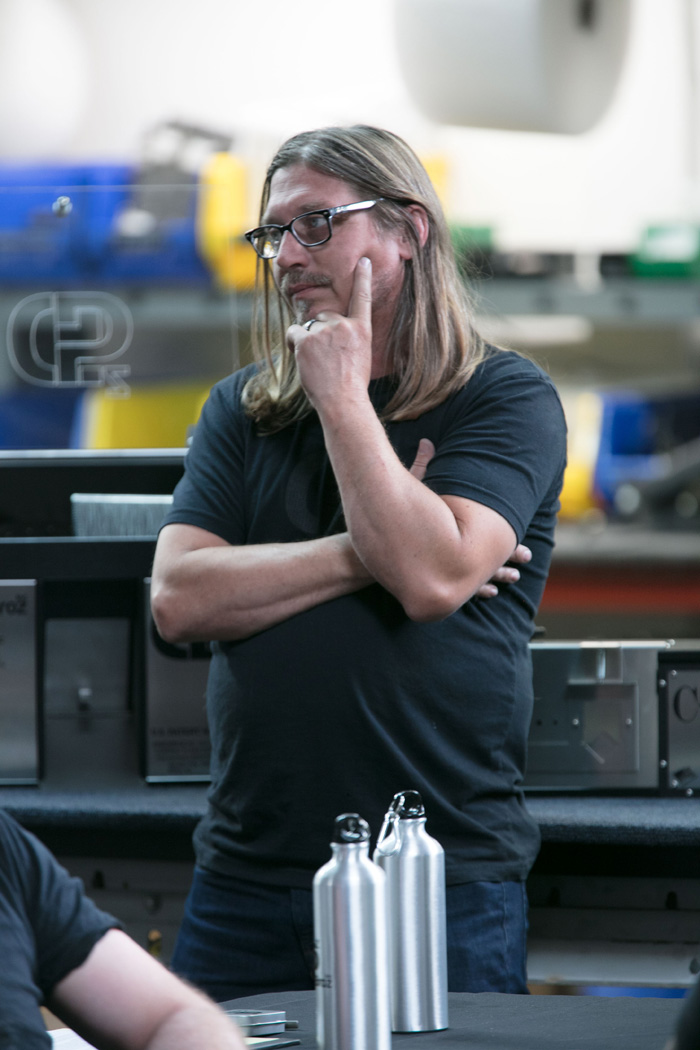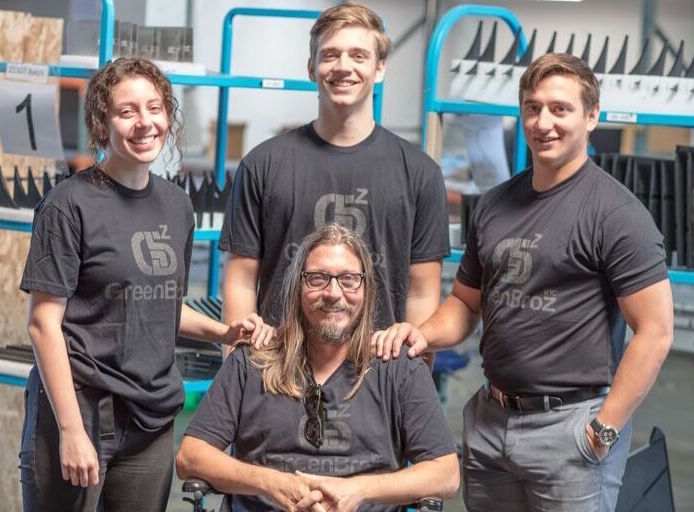After massive wildfires swept through Northern California’s Wine Country last fall, right at harvest time, GreenBroz Inc. made some of its high-end trimming machines available to cannabis growers and processors whose operations had been damaged or destroyed. For Donna Burch, owner of Thrive Hydroponics of Healdsburg, this was just another indication San Diego-based GreenBroz truly cares about its customers.
The fires were devastating, and the people who weren’t themselves victims knew a lot of others who were. Burch’s son lost his home and “barely escaped with his life,” she said. For growers who were able to do so, getting back to work as quickly as possible represented the best way to cope. GreenBroz helped many of them by giving machines to Thrive and Hydro Pacific Garden Supply so they could lend the equipment to cultivators at no charge. “I can’t say enough good things about them,” Burch said. “They’re just a really good company.”

She thought so before the fires, too, not only for the top-notch customer service she said GreenBroz always has provided, but for the machines themselves, which she said are in high demand for both sales and rental. All the customer service in the world won’t help you if the product you’re selling is substandard, she noted.
GreenBroz founder Cullen Raichart embraced that truism from the beginning. When he was a kid, his family was in the printing business, where the machines had to work perfectly all the time and last through decades of constant use. “My dad taught me the value and need for quality,” he said.
Raichart always enjoyed working with his hands and said he “love[s] machines.” The results of an aptitude test he took in high school revealed he should be a mechanical engineer. “But for some reason, I decided to ignore that,” he recalled. Instead, he served a five-year stint in the U.S. Navy, serving in Operation Desert Storm. Then he took up software development, among other things designing email systems for Hewlett-Packard.
Along with a Navy buddy who is no longer with GreenBroz, Raichart decided to devise a better machine for cannabis trimming after witnessing some early models in action. At the time, around 2012, a debate raged about hand-trimming vs. machine trimming. The debate continues today, but now it most often centers around machines taking jobs from people. Back then, the arguments were more about quality. It was clear to Raichart that humans were still a lot better than machines. He set out to change that. By many accounts, he has.
“It’s not a question of ‘better than,’” he said. “It’s a question of ‘as good as.’” He believes once a machine is as good as a human at a given task, it’s just a question of economics—which is to say, speed and volume.
With twenty machines built, Raichart headed out on sales calls. He didn’t have much luck, but he made a $60,000 sale to a distributor in Northern California, which gave him a bit of confidence. He pitched a plan to investment tank ArcView Group, but while investors seemed interested, even enthusiastic, they didn’t pull out their checkbooks. He tried again some months later, after finding a buyer for ten commercial-grade dry trimmers that sold for $10,000 a pop. That was enough to convince investors to back him, and he landed his first $150,000 in outside capital.
By the start of 2015, GreenBroz had logged $360,000 in sales. By the end of the year, revenue hit an eye-popping $3.4 million. In 2017, the company reported sales of $5.7 million.
GreenBroz is profitable, and the only debt on its books is for manufacturing equipment, which, unlike in the early days when the company farmed out assembly, is now all housed at the company’s headquarters. “My engineers get to go right from their computers out onto the floor,” Raichart said. For technology nerds like Raichart and his employees, GreenBroz is now “like a really big playground.”
The quality of the machines has increased, too. The first trimmer processed eight pounds of cannabis per hour. The industry standard at the time was about two pounds per hour, which was faster than hand-trimming but not spectacular. Now, the company’s top-of-the-line 420 Dry Trimmer can process up to twelve pounds an hour, with much better accuracy, and it runs “whisper-quiet,” according to the company’s literature. According to GreenBroz customers, most people can’t tell the difference between hand-trimmed flower and that trimmed by a GreenBroz machine.
The trimmers, of course, are a mainstay. But much of GreenBroz’s recent growth comes from adding new products. Besides a smaller dry trimmer (the 215, which processes four pounds per hour), the company also offers precision batchers, sorters, de-stemmers and, most recently, a set of trichome extractors: the Alchemist 215 and the larger Alchemist 420. Most of the products come in two sizes, allowing GreenBroz to serve every market from mom-and-pop shops to large commercial grows.

Future growth, according to Raichart, lies in tying all GreenBroz products together in one package. “We’re working with cultivators to provide them with an end-to-end solution,” he said. The company’s approach now is to morph from a supplier of machines to a supplier of services, similar to the way IBM in the 1990s began de-emphasizing its computers and started acting more like a consultant (while still selling its machines and software, of course). “We’re in the business of helping our customers solve problems,” Raichart said.
GreenBroz now stands at a crossroads. Most likely, Raichart said, it will operate independently for at least a few more years. But as the leader in a fast-growing market, with fat margins and increasing revenues, he can’t help thinking about an exit, either by going public or selling to a larger company. Growth, he said, is obviously welcome, but also “painful.”
“You want a consistent budget, but you don’t know what you need to be spending and [you have] no idea if the market might change all of a sudden,” he said. And, in a brand-new industry like legal cannabis, “Nobody understands the cycles. There’s no history, no way to know. But you still have to spend a lot to keep up.” —Dan Mitchell













